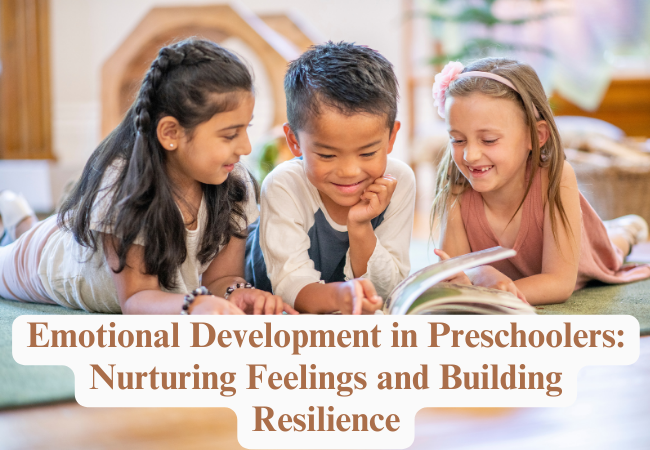Building Healthy Sleep Habits: A Guide for Restful Nights and Productive Days
Struggling with sleep issues? Discover effective strategies for building healthy sleep habits that promote restful nights and energized days. Learn tips for improving sleep routines for the whole family.
Healthy sleep is the foundation of good health, productivity, and overall well-being. Yet, in our fast-paced world, many of us struggle to get the restful sleep we need. This guide offers practical strategies for building healthy sleep habits that can transform your nights and energize your days. Whether you’re dealing with insomnia, inconsistent sleep patterns, or just looking to improve your sleep quality, these tips can help you and your family achieve more restful nights.
Understanding the Importance of Sleep

Before diving into strategies, let’s briefly explore why sleep is so crucial:
- Supports physical health and immune function
- Enhances cognitive performance and memory consolidation
- Regulates mood and emotional well-being
- Aids in growth and development (especially important for children)
- Helps maintain a healthy weight
Strategies for Building Healthy Sleep Habits
1. Establish a Consistent Sleep Schedule
- Go to bed and wake up at the same time every day, even on weekends
- Aim for 7-9 hours of sleep for adults, more for children and teenagers
2. Create a Relaxing Bedtime Routine
- Start winding down 30-60 minutes before bed
- Include calming activities like reading, gentle stretching, or meditation
- Avoid stimulating activities or screens close to bedtime
3. Optimize Your Sleep Environment
- Keep your bedroom cool, dark, and quiet
- Invest in a comfortable mattress and pillows
- Use blackout curtains or an eye mask if needed
4. Mind Your Diet and Exercise
- Avoid caffeine, large meals, and alcohol close to bedtime
- Exercise regularly, but not too close to bedtime
- Consider a light snack if hunger disrupts your sleep
5. Manage Stress and Anxiety
- Practice relaxation techniques like deep breathing or progressive muscle relaxation
- Keep a journal to write down worries or to-do lists before bed
- Consider cognitive-behavioral therapy for persistent sleep anxiety
6. Limit Screen Time Before Bed
- Avoid screens for at least an hour before bed
- Use blue light filters on devices if late-night use is unavoidable
- Keep electronics out of the bedroom
7. Be Mindful of Naps
- Limit naps to 20-30 minutes
- Avoid napping late in the day
8. Get Natural Light Exposure
- Spend time outdoors during the day, especially in the morning
- Open curtains or blinds to let in natural light
9. Consider Sleep Aids Carefully
- Consult a healthcare provider before using sleep medications
- Try natural aids like chamomile tea or lavender essential oil
10. Address Snoring and Sleep Apnea
- Seek medical advice if you or your partner snores heavily or shows signs of sleep apnea
- Consider lifestyle changes or medical interventions as recommended
Tips for Improving Family Sleep Habits
For Children:
- Establish consistent bedtime routines
- Create a calm, comfortable sleep environment
- Limit stimulating activities before bed
- Encourage physical activity during the day
For Teenagers:
- Educate about the importance of sleep for academic performance and mood
- Help manage school and extracurricular schedules to allow for adequate sleep
- Encourage a technology curfew before bedtime
For Parents:
- Model good sleep habits for your children
- Prioritize your own sleep needs
- Create a family culture that values rest and relaxation
Overcoming Common Sleep Challenges
Insomnia:
- Practice good sleep hygiene consistently
- Try relaxation techniques or cognitive-behavioral therapy
- Consult a healthcare provider if insomnia persists
Shift Work:
- Use blackout curtains to darken your sleep environment
- Consider light therapy to help regulate your circadian rhythm
- Maintain a consistent sleep schedule on days off
Jet Lag:
- Adjust to the new time zone as quickly as possible
- Spend time outdoors in natural light
- Stay hydrated and avoid caffeine close to bedtime
When to Seek Professional Help
If sleep problems persist despite implementing these strategies, it may be time to consult a healthcare provider or sleep specialist.
Seek help if you experience:
- Chronic insomnia lasting more than a month
- Excessive daytime sleepiness
- Loud snoring or gasping during sleep
- Persistent sleep disturbances affecting daily life
Conclusion
Building healthy sleep habits is a journey that requires patience and consistency. By implementing these strategies and tailoring them to your individual needs, you can significantly improve your sleep quality and overall well-being. Remember, good sleep is not a luxury—it’s a necessity for health, productivity, and happiness.
Start by making small, manageable changes to your sleep routine. Pay attention to how these changes affect your sleep quality and daytime energy levels. Be patient with yourself and your family as you work towards better sleep habits. Over time, these efforts will pay off in more restful nights and more productive, energized days.
Prioritizing sleep is one of the most impactful things you can do for your health and well-being. By fostering good sleep habits for yourself and your family, you’re investing in better physical health, improved mental clarity, and enhanced emotional well-being. Sweet dreams and restful nights await!
For more information on sleep health, visit:
Remember, if sleep problems persist or significantly impact your daily life, don’t hesitate to seek professional help. A sleep specialist can provide personalized advice and treatment options to address your specific sleep concerns.
For more information and guide, visit usaparentingtips.com






